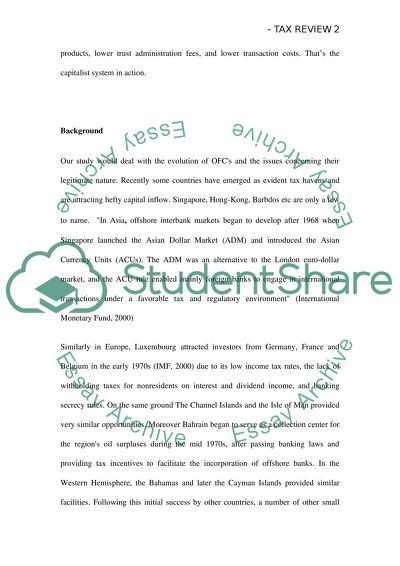Cite this document
(“Tax Havens or Offshore Financial Centre Thesis Example | Topics and Well Written Essays - 3500 words”, n.d.)
Retrieved from https://studentshare.org/finance-accounting/1532834-tax-havens-or-offshore-financial-centre
Retrieved from https://studentshare.org/finance-accounting/1532834-tax-havens-or-offshore-financial-centre
(Tax Havens or Offshore Financial Centre Thesis Example | Topics and Well Written Essays - 3500 Words)
https://studentshare.org/finance-accounting/1532834-tax-havens-or-offshore-financial-centre.
https://studentshare.org/finance-accounting/1532834-tax-havens-or-offshore-financial-centre.
“Tax Havens or Offshore Financial Centre Thesis Example | Topics and Well Written Essays - 3500 Words”, n.d. https://studentshare.org/finance-accounting/1532834-tax-havens-or-offshore-financial-centre.


